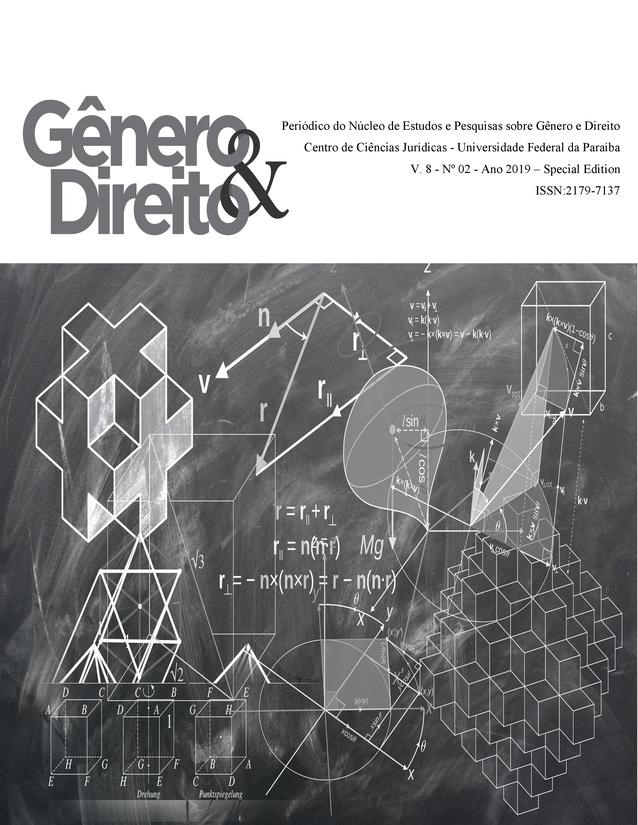EVALUATING MANAGEMENT SYSTEMS AND THE INTANGIBLE PERFORMANCE OF ORGANIZATION INFLUENCED BY THE ENTERPRISE RESOURCE PLANNING
DOI:
https://doi.org/10.22478/ufpb.2179-7137.2019v8n2.46463Resumo
This study investigates the effects of enterprise resource planning systems adoption on Intangible performance of a firm. Specifically, the role of informal management control systems is investigated as mechanisms which mediate the effect of enterprise resource planning systems adoption on intangible performance of a firm.The empirical analyses of this study are based on survey data drawn from 4 companies that were collected by questionnaire. This study test our structural equation model using the multivariate statistical method Partial Least Squares (PLS) .The findings of this study demonstrate that informal types of management control systems do not mediate the positive effect between enterprise resource planning systems adoption and Intangible performance. These results are very important because the evidence on the joint roles of enterprise resource planning systems and management control system on improving the firm performance is very limited in prior literature. The results of this study show that the use of enterprise systems results in improved firm performance in the long run, and that more formal than informal types of management controls help firms achieve future performance goals.Downloads
Referências
Azar, Adel; Jahanian, Reza (2011). Reengineering Business Processes: Concepts and Case studies. Organization for the Study and Compilation of Humanities Books of Universities (samt).
Tavakoli, Ahmad; Taghikhah, Firoozeh. (2012). Explain the importance of designing appropriate comprehensive indicators to measure the impact of the organization's planning system on the performance of organizations. National Conference on Modern Management: 26-08-2012.
Roosta, Ahmad (2010). Quality of Service Provision and Customer Satisfaction Guidelines. Second International Conference on Quality and Productivity Management in the Globalization Attitude, Ministry of Industry and Mines.
Naseri Taheri, Parviz; Taheri Ardakani, Hasan and Khalou Bagheri, Hojjat A. (2008). ERP market characteristics in Iran. Tadbir, No. 195: page 42-48.
Aladwani,A.(1985).Change management strategies for successful ERP implementation. Business Process Management Journal 7 (3):266–275.
Al-Mashari,M.(2003).Enterprise resource planning (ERP) systems: a research agenda. Industrial Management & Data Systems 103 (1):22–27.
Amid,A., Moalagh, M., ZareRavasan,A.(2012). Identification and classification of ERP critical failure factors in Iranian industries.Information Systems 37:227–237.
Anthony,R.N.,Govindarajan,V.(2007).Management Control Systems.Chicago : McGra -Hill Irwin.
Anthony,R.N.(1965).A Framework for Analysis. Planning and Control Systems. Boston, MA, Harvard Business School Press.
Dechow,N.Mouritsen,J.(2005).Enterprise resource planning systems, management control and thequest for integration.Acc Organ Soc;30:691–733.
Davenport,T.H.(1998).Putting the enterprise into the enterprise system. Harvard Business Review, 76( 4):121-131.
Dehning,B.Richardson,V.J.Zmud,R.W.(2003).The value relevance of announcements of transformational information technology investments. MIS Quarterly, 27(4): 637–656.
DeLone,W.D.McLean,E.R.(2003).The DeLone and McLean model of information systems success: a ten-year update. Journal of Management Information Systems 19 (4): 9–30.
Desouza,K.,Evaristo,J.(2006).Project management offices: a case of knowledgebased archetypes. International Journal of Information Management 26 (5): 414–423.
David,P.,Norton.(2012).Managing Business Performance: The Challenge of Intangible Assets. Prepared for WPI Events September - October.
Emigh,J.(1999).Net present value. ComputerWorld, 26 July, 33(30): 52-53.
Farbey,B.,Land,F.F,Targett,D.(1995).A taxonomy of information systems applications:
Lev,B.Schwartz,A.(1971).On the use of the economic concepts of human capital in financial statements. The Accounting Review January:103-112
Lev,B.(2001).Intangibles: Management, Measurement, and Reporting.Washington D.C.
Lonnqvist,A.,Mettane,P.(2002).Criteria of Sound Intellectual Capital Measures ,Proceedings of the 2nd International Workshop on Performance Measurement. Hanover,Germany , June6-7:147-157.
META Group Survey(Extract): ERM Solutions and Their Value. Meta Group.
Malmi,T.,Brown,DA.(2008).Management control systems as a package - opportunities, challenges and research directions .Management Accounting Research;19:287–300.
Mahmood,M.A.,Szewczak,E.J.(1999).Measuring Information Technology Payoff: Contemporary Approaches. Hershey, PA: Idea Group Publishing..
Mabert,V.A.,Soni,A.,Venkataramanan,M.A.(2001).Enterprise resource planning: Measuring value. Production and Inventory Management Journal, 42(3/4):46–51.
Markus,M.L.,Tanis,C.(2000).The enterprise system experience: from adoption to success, in: R.W. Zmud (Ed.), Framing the Domains of IT Management: Projecting the Future through the Past.Pinnaflex Educational Resources Inc., Cincinnati:173–207.
Merchant,K.A.,Otley,D.A.(2006).review of the literature on control and accountability. In: Chapman C, Hopwood A, Shields M, editors. The Handbook of Management Account Research. Elsevier Press.
Markus,M.L.,Axline S.,Petrie D.,Tanis,C.(2000).Learning from adopters’ experiences with ERP: problems encountered and success achieved. Journal of Information Technology 15 (4) : 245–265.
Tsai,W.,Shaw,M.,Fan,Y.,Liu,J.,Lee K.,Chen,H.(2011).An empirical investigation of the impacts of internal/external facilitators on the project success of ERP. a structural equationmodel. Decision Support Systems 50 (2):480–490.
Peters,T.,Waterman,R.H.(1982).In Search Of Excellence summary.McKinsey 7-S model.
Waters,D.(1996).Operation Management. Addison-Wesley.
Widener,S.(2007).An empirical analysis of the levers of control framework. Acc Organ Soc;32:757–88.
Wilkes University.(2013).Performance Management-Dictionary of Competencies:7-17.
Wold,H.(1985).Systems analysis by partial least squares. In: Nijkamp P, Leitner N, Wrigley N, editors. Measuring the Unmeasurable. Dordrecht: Marinus Nijhoff.

